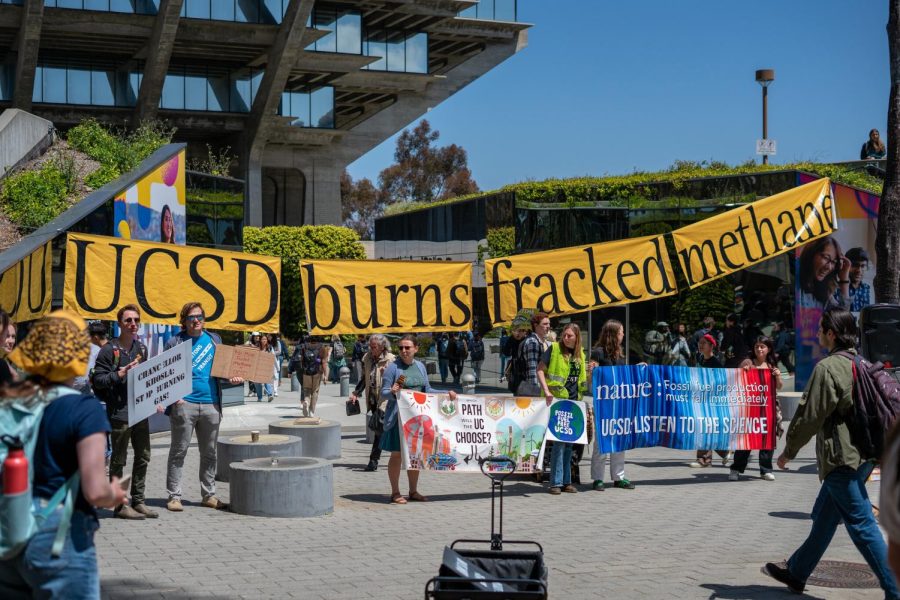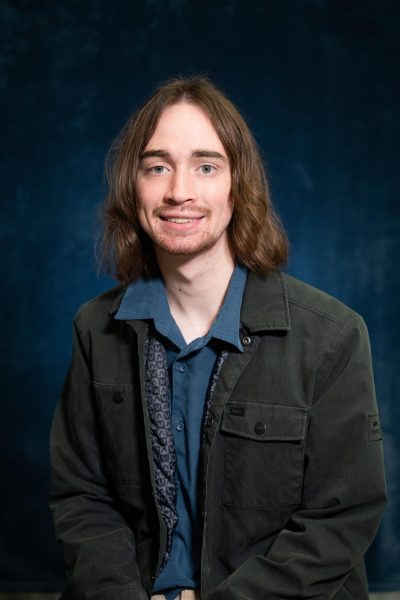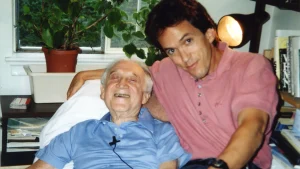Green New Deal at UCSD Holds Walkout for Climate Rally amid Khosla’s New “Dream” for Electrification by 2030
Photo by Alexander Olsen/ UCSD Guardian
Apr 22, 2023
The Green New Deal at UC San Diego held a rally, titled Walkout For Climate, at 12 p.m. in front of Geisel Library on April 19. Passerbys heard chants, songs, and drumming from the WorldBeat Drummers. Similar rallies occurred throughout the week at other UC campuses in honor of earth day.
The crowd gathered around Geisel Library for about half an hour, before walking through the Student Center and onto Sixth Lawn. Several guest speakers, comprised of students and faculty, gave talks about their personal experiences with climate change.
Monica Nelson, a fourth year PhD student, shared Chancellor Pradeep Khosla’s said “dream” to decarbonize UC San Diego and electrify the campus by 2030. According to Nelson, Khosla spoke Monday night at an event featuring Kim Stanley Robinson, science fiction writer and author of “The Ministry for the Future.” The novel heavily relates to climate change and climate disaster. At the event, Khosla gave opening remarks to the room, saying “My hope, my dream, my desire is that by 2030 we convert our campus to all electric.”
However, given this goal, Nelson emphasized that Khosla did not give a lot of detail for this plan.
“I think that he is making that statement because of pressure that we’ve applied, and he wants to be seen as a leader in this climate-action space,” Nelson said. “I think that the university has been given money by the University of California to make a decarbonization plan and spend a year paying a contractor to study how to make this transition. I think 2030 is very ambitious and I would be pretty shocked if we were to do it by then, but that’s what we’re going to fight for.”
According to Nelson, immediately after declaring his dream for electrification by 2030, Khosla followed by saying that “each and every person in [that] room needs to take individual action.” However, Nelson believes that students shouldn’t “feel trapped in their individual guilt,” and that a majority of emissions originate from corporations and institutions like UCSD.
As reported by The UCSD Guardian earlier this year, UCSD is currently the second-highest emitter of carbon emissions due to the cogeneration plant located in Revelle College. 72% of the campus’s electricity is generated from the plant annually, bringing into question the feasibility of Khosla’s plan.
PhD candidate Adam Cooper, the Energy Systems Lead for the Green New Deal at UCSD, questioned if Khosla’s statement on Monday was “something he only says in front of a room of donors,” or if this is something that Khosla himself will lobby for.
The rally examined the effects of the pressure that organizations like the Green New Deal at UCSD have had on the administration’s decision making. Speakers referred to the closing of the Chase Bank branch in Price Center, after the company was named as a major funder of the oil and gas industry. The move came following the Green New Deal at UCSD’s rallying for UCSD to stop supporting the bank.
Cooper expressed how crucial student support is for measures like decarbonization.
“Fundamentally, we’re trying to restructure how this university is run, so we need to win the cultural battles before we win any of the logistical or infrastructure battles,” he said.
Cooper continued by saying that, due to the intensity of the full campus decarbonization project, they “need the UCSD community to be behind it.”
Scripps Institution of Oceanography professor Jeff Severinghaus also spoke, informing attendees that “only 16% of greenhouse gas emissions are actually in the control of individuals,” while the rest come from corporations and institutions. He urged the need for people to vote for political candidates that are willing to take action against the other 84% of emissions.
Student speakers at the rally also discussed how SIO has taken grant money from oil companies, as well as placing multiple oil executives on their board of directors. These include the former CEO of an oil company, Stephen Strachan, as the board’s chair, as well the current and former CEO of San Diego Gas & Electric, Caroline Winn and Tom Page. Green New Deal at UCSD has recently launched a new campaign called Fossil Free Research, which aims to push for the removal of fossil fuel influence from spheres of research within SIO.
A separate SIO professor was recently named in a lawsuit for allegedly failing to disclose his affiliations to an energy company when consulting on a climate plan report.
Earl Warren College junior and Green New Deal at UCSD New Member Coordinator Maxwell Lyons was the master of ceremonies for the walkout. When asked about the importance of student involvement in Green New Deal efforts, he said that student pressure leads to a lot of huge victories.
“The administration really doesn’t like to look bad, they really fear collective action,” Lyons said. “And when hundreds and hundreds of people gather outside the library and make a huge ruckus, and everyone walking by — all the new student tours walking by — and hearing how the UC is complicit in the climate crisis, that is a really bad look and that embarrasses them. And the UC is funded by taxpayer dollars, and they need to be held accountable, and so we really need to see a concrete, specific UC policy that is written down and holds them accountable.”
For students looking to get involved, the Green New Deal at UCSD has plenty of positions throughout their organization for people to find what fits best, as well as monthly meetings on campus. To learn more about Green New Deal at UCSD, visit their website.















